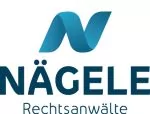After implementation of the 4th Anti-Money Laundering Directive and adaptation of the Mutual Legal Assistance Act, the Liechtenstein Government has also ratified the 2nd Additional Protocol to the European Convention on Mutual Assistance in Criminal Matters (hereafter "Convention").
Scope of the Convention
The Convention is the oldest international treaty which codifies rules on mutual legal assistance.
In this Convention the parties undertake to afford each other the widest possible mutual assistance in the gathering of evidence, hearing of witnesses, experts and accused persons.
The Convention regulates the execution of requests for mutual assistance by the judicial authorities of one party ("requested party") for the purpose of obtaining documents and evidence (hearing of witnesses, experts and defendants, notification of procedural documents and court decisions) or transmitting them (files or other documents) in criminal matters conducted by the judicial authorities of another party ("requesting party").
Furthermore, the Convention specifies the requirements for requests for mutual assistance (competent authorities, language, reasons for refusal).
The Principality of Liechtenstein joined the Convention in 1970. The fact that, in addition to all 47 member states of the Council of Europe, Israel, Chile, and South Korea have become parties to the treaty, emphasises the international significance of the Convention.
Adjustments to the version currently in force
The 2nd Additional Protocol to the Convention, which has been submitted to the Liechtenstein Parliament for approval, contains a number of additional provisions to simplify and tighten international mutual legal assistance procedures.
We have summarised the most important improvements for you:
Focus on road traffic and economic offences
Probably the most important innovation is the inclusion of administrative offences within the scope of the Convention.
So far, the Convention only covered pending criminal proceedings. Now, administrative offences prosecuted by an administrative authority will eligible for legal assistance.
The previous legal framework was considered unsatisfactory by the Member States, since various criminal acts are punishable in some States as criminal offences, but in other States as administrative offences, which were excluded from legal assistance. This circumstance particularly applied to road traffic offences and financial offences.
In this context, the Liechtenstein authorities have already made positive experiences in prosecuting road traffic offences on the basis of a bilateral agreement with Austria.
The amendment does not affect the reasons for refusal in cases of tax offences. The relevant legislation in this context is still the Mutual Legal Assistance Act (RHG), which was recently adapted to European law.
Information on the adaptation of the RHG can be found at: https://www.naegele.law/archiv/regierung-will-verstaerkt-gegen-auslaendische-steuervergehen-vorgehen-und-rechtshilfe-ausweiten
Criminal investigations will be simplified
In future, there will be the possibility to transfer detained persons to the requesting State if the person is suspect of a crime. Transfers for investigative purposes only, such as police interrogations are permitted.
In order to avoid any difficulties of delimitation with the extradition, the transfer of detained persons for conviction is excluded explicitly. Transfer for the purpose of giving testimony as a witness or for identity parades in criminal proceedings was already possible before. This provision will also apply to non-nationals of the contracting parties.
Procedures become faster and more efficient
Finally, there will be improvements concerning the procedural economy. Requests can now be submitted directly to the competent judicial authority of the requested State and returned through the same channels and no longer have to be sent through the Ministries of Justice. The same applies to administrative authorities. For effective implementation, the participating states are obliged to draw up a list of the judicial and administrative authorities which will in future process requests for legal assistance directly.
In addition, the possibility of interrogation by videoconference is made possible if personal appearance in another country is not appropriate (e.g. physical distance) or not possible.
The regulation covers experts and witnesses and, under certain circumstances, suspects and defendants. A condition for the use of videoconferencing is compliance with the principles of the rule of law and the procedural rights of the European Convention on Human Rights (ECHR).
Originally published Naegele, May 2020
The content of this article is intended to provide a general guide to the subject matter. Specialist advice should be sought about your specific circumstances.
[View Source]

